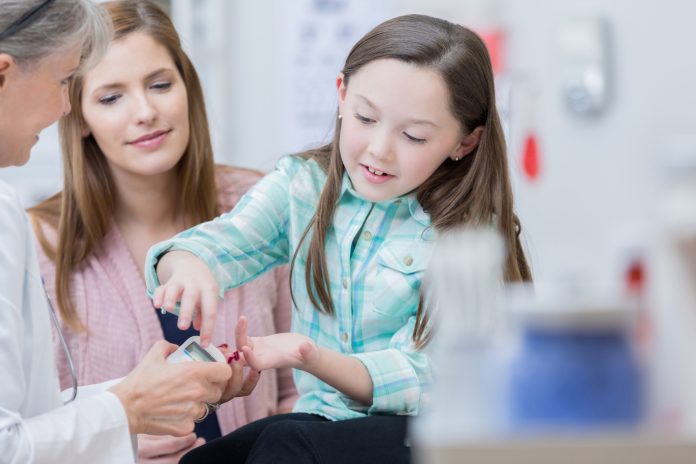
The Keck School of Medicine of USC has announced the launch of a nationwide longitudinal study aimed at understanding how type 1 diabetes impacts brain development in children. Funded by a $2.7 million grant from the National Institutes of Health, this multi-site study will involve collaboration among 12 research centers across the United States.
Type 1 diabetes has been linked to cognitive impairments in adults, particularly in areas such as working memory and executive function. However, the effects on children during critical developmental periods remain largely unexplored. This study seeks to fill that gap by recruiting more than 1,000 children recently diagnosed with the condition.
“What we really want to know is: In children newly diagnosed with type 1 diabetes, what are factors that may either accelerate or mitigate the risk of developing brain-related complications?” said Kathleen Alanna Page, MD, an associate professor of medicine at USC and one of the principal investigators for the project.
The study’s design aims to include participants from a range of racial, ethnic, and socioeconomic backgrounds, which is a departure from past type 1 diabetes research that has largely focused on white children.
“We want to translate these insights into real-world opportunities that can help the greatest number of children with diabetes,” Page emphasized.
The researchers believe this study could refine clinical guidelines for managing type 1 diabetes, particularly determining what glucose levels are best for healthy brain development. It could also suggest other therapeutic approaches such as adjustments in sleep, diet, and physical activity designed for individual patients.
“All of that is going to be critically important in improving outcomes in children with diabetes and putting them on the trajectory for better health in the long term,” Page noted.
Advanced tools such as insulin pumps and continuous glucose monitors, which have significantly changed the treatment landscape for type 1 diabetes, will play an important role in the research. Continuous glucose monitors, for instance can provide important data detailing how glucose levels fluctuate during the day to detail the amount of time a person spends in “high-glucose” and “low-glucose” state.
Page said that being able to compare information about brain health could help refine clinical guidelines for type 1 diabetes and to help determine, more precisely how tight the range of glucose levels should be for appropriate clinical management.
The study will also employ functional magnetic resonance imaging (fMRI) to non-invasively examine the structure and function of the children’s brains, offering insights that were previously difficult to obtain.
Childhood is a period of rapid brain development, and the researchers believe this study can provide insight into the long-term health effects of type 1 diabetes. In addition to the brain imaging, the study will also collect data relating to academic performance, memory and attention, as well as neurobehavioral data such as anxiety and behavioral health.
As the project progresses, researchers from each of the study sites will gather to finalize a detailed study protocol before recruitment begins. Leading the study from the Southern California hub, Page will be joined by co-principal investigators Jennifer Raymond, MD, a pediatric endocrinologist at the Children’s Hospital Los Angeles, and Anny H. Xiang, PhD, director of biostatistics research at Kaiser Permanente Southern California.
Other sites participating in the study are the University of Minnesota; Washington University in St. Louis; the University of North Carolina at Chapel Hill; Indiana University-Purdue University Indianapolis; the University of Florida; New York University School of Medicine; the University of California, Davis; Vanderbilt University Medical Center; Joslin Diabetes Center; Nemours Children’s Clinic; and the University of Colorado Denver.





